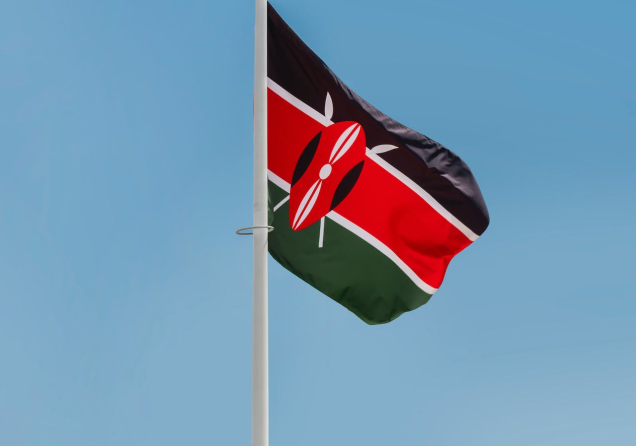Forex Trading in Kenya - Basics, Regulation
![]()
Forex trading in Kenya has assumed great importance because of the technological and regulatory advances that have been made there as far as financial market operations are concerned. Kenya is located in East Africa and is considered the most advanced economy of the region. Kenya’s e-payment revolution is well known, being the first country to push mobile payments to the forefront of economic activity not just in the region, but in Africa. These advancements have allowed the forex market to take a solid hold in the country.
Overview of the FX market in Kenya
Kenya’s forex industry operates within the confines of the African environment, which can be classified as the Wild, Wild, West of forex trading. All across the continent, regulatory infrastructure for the trading of exotic financial products is weak. This stems from the relatively late entrance of Kenya and other African countries into the FX market space, with the earliest trading activity taking place nearly 16 years ago. At this time, FX trading in Europe, Asia and the US were already well-established activities with a defined regulatory structure. However, Kenya has sought to distinguish itself within this environment and has made some changes which are making market watchers take notice.
Forex Trading in Kenya - Regulation
Apart from South Africa (and it's FSCA regulator) and Mauritius, which have a very strong foreign presence that probably influenced the early development of a regulatory structure, forex trading in Kenya has become the focus of forex dealers and traders alike as it has become the third country in Africa to institute defined regulations for the forex market.

Forex trading in Kenya is now a regulated business. The country’s forex regulator is the Capital Markets Authority (CMA). The CMA issued guidelines for the regulation of forex trading in Kenya for the first time in 2017. Regulation by the CMA is delivered by focus on two main issues: monitoring and reporting.
Capital Markets Authority - Reporting
Under reporting, the CMA tasks the local companies on how they onboard clients. This is where comprehensive KYC which matches the standards used in the banking industry are used. CMA is also interested in how prospective forex traders are educated. Forex market brokers are expected to have an in-house dispute handling process to handle minor disputes. Cases that cannot be handled in-house can be escalated by the aggrieved traders to the regulator for resolution. Complaint handling procedures of operators are reviewed on a monthly basis by the CMA using the register that is maintained for that purpose.
CMA - Monitoring
On the monitoring side of regulation, issues regarding the cybersecurity protocols maintained by the forex operators are looked at. Handling of user data is looked at by the regulator and in-house IT audits are expected to be done by the forex market operators every six months. Prior to the implementation of the regulatory changes to the forex trading market in Kenya, most local traders used to patronize foreign brokerages located in the UK and in Europe. Prior to 2010, several US brokers also made in-roads into the local forex market, snapping up loads of trading customers until the changes brought about by the Dodd-Frank Act changed the game in that respect.
However, the new regulatory protocols put in place in 2017 in Kenya have made it an attractive proposition for local players to join the industry and we now have a number of local forex brokerages springing up. However, these are still very virgin companies without the experience and market depth to dislodge the more established offshore players who already have a foothold in that market.
The enhancement of regulation has brought on some positive changes to the forex trading landscape in the country. Forex traders in Kenya are now more enlightened, and there is an increase in local interest in the forex market and the products that are offered. Local operators are mandated to maintain segregated accounts in designated banks. Also, 3rd party account management can only be done by registered and regulated money managers.
Deposit Methods Available for Forex trading in Kenya
Being able to obtain foreign exchange for trading with offshore brokers has always been a challenge, as there are local restrictions applicable. That is why forex operators targeting the Kenyan market have had to make some adjustments to their deposit and withdrawal transaction systems to accommodate locally available options.
a) Digital wallets: Critical to successful forex trading in Kenya is the use of the local mobile money provider known as mPesa. MPesa started off as a mobile money provider but has since become a regional powerhouse when it comes to financial technology. MPesa provides Kenyan forex traders with access to the forex market in the local currency (Kenyan Shillings) through integration with conventional payment systems. Forex trading in Kenya using M-Pesa how became wildly popular.b) Bank wires: Deposits for forex trading in Kenya can still be done using bank wires with compatible brokers. This requires access to foreign exchange and is not very popular with the local populace, who are already used to using their mobile phones to conduct payments in local currency with MPesa.
Who is the Typical Forex Trader in Kenya
- Young
The typical demographics of the forex trader in Kenya is that of a young individual, just starting life and ready to take some risks in life, especially when it comes to speculative investment vehicles. The typical age bracket is between 24 – 30 years. This is a young target market that features an active working class.
- Requiring Trading Education
Recent surveys performed by the first licensed indigenous market operator in Kenya shows that there is a forex education gap in Kenya. Therefore, there is an opportunity for brokers who want to target the market to offer comprehensive trading education as part of the mix.
How to trade forex in Kenya
Presently, there are no more than three local brokers in Kenya, and the majority of the market is still being serviced by offshore forex brokers. There could be a situation where local operators would continue to run hand in hand with the foreign forex brokers. However, the country’s regulator has made it very clear that no forex brokerage is allowed to market or distribute forex products without being licensed to do so. This provides an opportunity for offshore brokers to open offices in Kenya so that regulated forex trading can be made available to the local market. Indeed, it is interesting to note that the parent company of the latest licensee is located in Cyprus.
Conclusion on forex trading in Kenya
Forex trading in Kenya is still a virgin space and the opportunities abound. However, the emphasis is now shifting to regulated trading and forex brokers intending to operate in that space should capture the local peculiarities of this market to offer forex products for the young, teeming population, itching for opportunities to add to their earnings.
Top-Tier Trusted Brokers
The table below contains links to 3rd party websites of our top partners from whom we receive compensation at no additional cost to you.


























